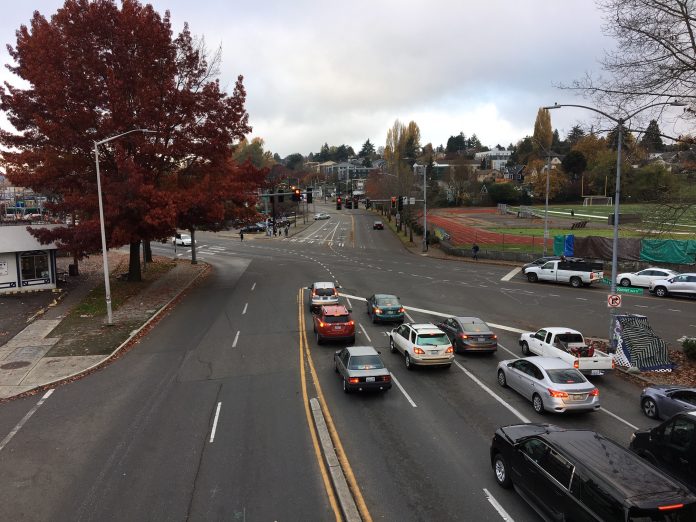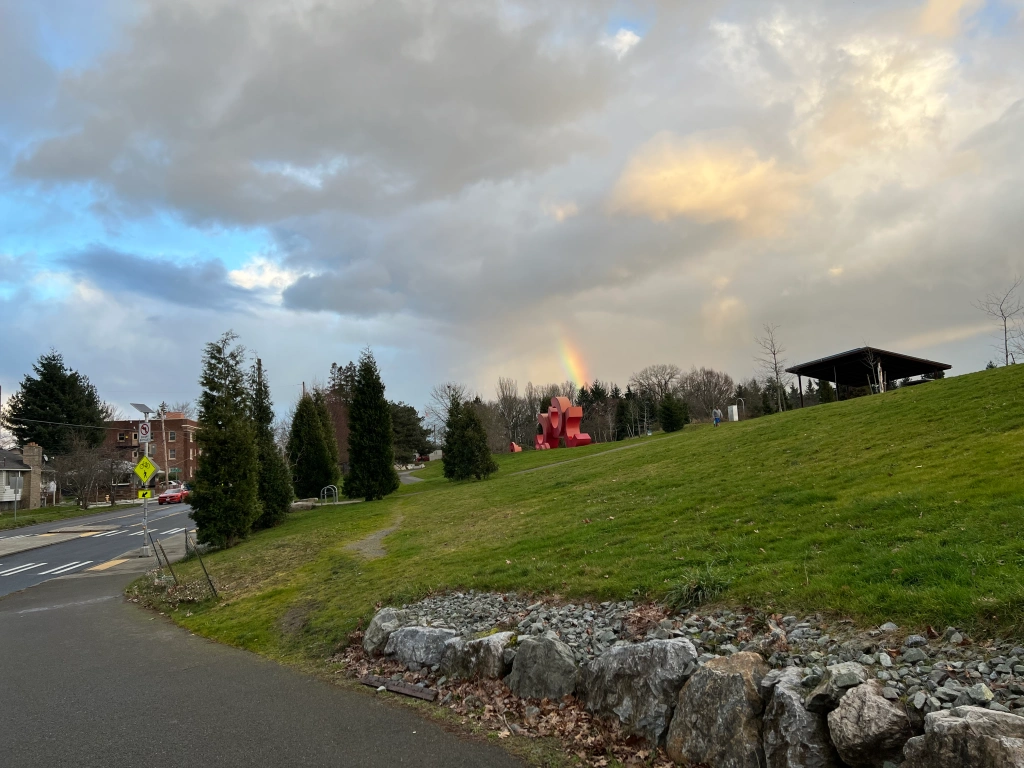
Even if you don’t drive a car, you know gas prices are high right now in the United States. Some states have already committed to gas tax “relief”, either through temporarily lowering state gas taxes or direct payments to vehicle owners. The federal government has released reserve oil to try to lower prices. Even though retail gas prices aren’t strongly correlated to gas taxes and oil is a global market hard to influence, some kind of relief is seen as politically necessary because driving is seen as unavoidable. Why can’t we ask people to drive less and use transit or walk or bike? Because, as implied in a recent New York Times article and claimed commonly elsewhere, it’s supposedly “infeasible” in much of the United States to live without a car.
Subsidizing drivers broadly is claimed as an equity issue: poor people are forced into driving and can’t afford current gas prices. While it’s true many people drive who really can’t afford to, the reality is the poorest in the United States disproportionately do not have cars at all, or if they do, they own fewer and drive less. Owning a car wasn’t cheap before the current gas price increases: many estimates put the average yearly cost to own and operate a vehicle at $8,000 or even $10,000 – half or more of a full time minimum wage income. Our system has for more than eighty years subsidized driving in myriad ways that people don’t even notice.
Of course, many millions of Americans do not have cars, do not or cannot drive or have access to a car only rarely. Poor people and disabled people exist. People who can’t or don’t drive learn to get around wherever they live: and they live everywhere including places that are “impossible” or “infeasible” without a car.
Even before I started losing my vision, I found joy in traveling places without a car. You experience the world differently when not inside a car. When I’m walking the kiddo to school, we make up silly games together like not stepping on cracks because they are lava and I find myself still not stepping on cracks as I walk home with a goofy smile. When we bike together, we can stop easily when she sees something interesting she wants a closer look at. When we take the bus together, we can snuggle up or play “I Spy”. We notice the way our city is built and we can hear and feel our world.

But it’s not always a joy for everyone because many places do lack safe and convenient ways to walk, bike or bus. Our lives – and frankly everyone’s lives – could be immensely improved if only more people were driving less and were less committed to protecting driving and space for it. Sixty percent of vehicle trips are less than five miles. Why not try something else?
The buses, sidewalks, bike lanes and other improvements people say we have to have before people can drive less will only exist if there is political demand for it because more people are already choosing something other than a car. It’s difficult to convince voters to support higher taxes to fund transit or to support converting car space to bus lanes, bike lanes or sidewalks when most never ride transit, don’t bike and hardly walk. We get more space to do the things many folks say are necessary – more walking, biking and transit – if more people with the ability to try walking, biking and transit actually do so.
Maybe you can’t ditch your car. But you can choose not to drive when you don’t have to. The increasing availability of e-bikes – far cheaper than any car – provide a joyful alternative for trips that are too far to walk or too inconvenient by transit. Some will read this and immediately object that not everyone can bike. I can’t drive and many others can’t. Though we don’t measure it well, likely more people cannot drive than cannot bike because a third of Americans cannot drive a car, due to age or disability. Even more cannot or rarely drive due to the financial burden.
There is also this reality: climate change is happening now. In the United States, 29% of our carbon emissions come from transportation, mostly private vehicles. In the state of Washington, because we have such a low emissions electrical grid, a majority of our emissions are from transportation. Millions of Americans know there are problems with driving: it pollutes, it’s noisy, it’s dangerous for others, it crowds out space for walking, biking and transit which many also want to do more of. We can’t fix climate change with individual action, but we solve big problems when enough of us are committed to solving those problems. We can’t tackle climate change without you. Millions of Americans trying to get around without their cars will build support for the myriad of fixes we need to create a transportation system that works for everyone.
Many who read this may be earning a median or better income where you live and have a car. Think about your car trips and try doing some of them without driving. If you believe that addressing climate change and saving salmon and other animals from runoff pollution are important (even EVs have this problem), then you believe that driving less is the right thing to do. If you think it’s wrong that people die on our streets, then you believe that driving less and driving smaller vehicles is the right thing to do. If you, with resources greater than half the people around you, will not do it, then how can we expect to see change? How can you nod in agreement with someone talking about equity and how we need more access to transit for people who don’t have alternatives and not do it yourself at least sometimes? Your individual action won’t fix the climate crisis or our transportation system, but each of our choices help create the pressure that will address those problems.
A slightly different version of this piece was previously published on Rachael’s blog, Fancy Beans.
